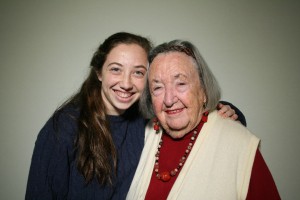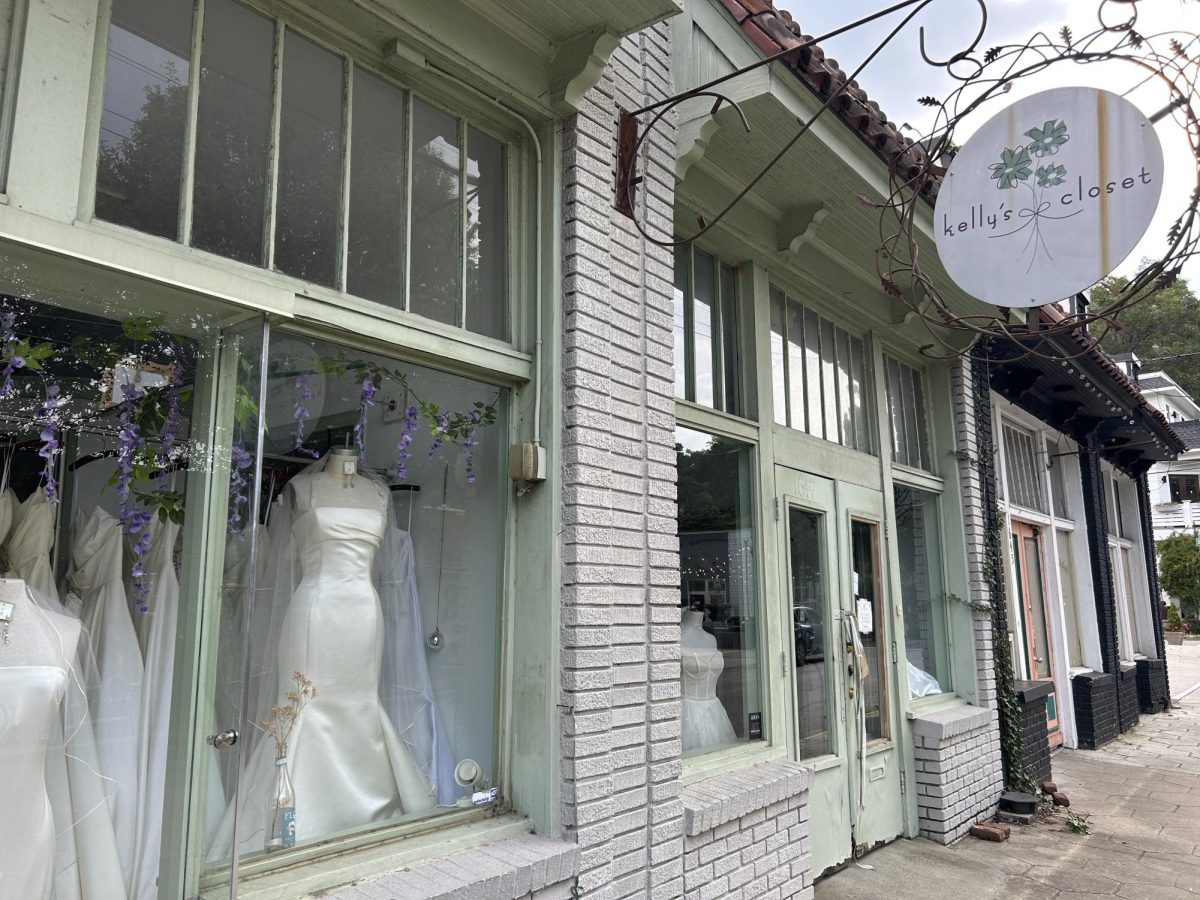 ORLI: My mom first suggested it. She thought that, of anyone, I could best elicit my grandmother’s stories. We wanted to preserve Nana’s 89 years worth of memories, and StoryCorps seemed like the perfect opportunity.
ORLI: My mom first suggested it. She thought that, of anyone, I could best elicit my grandmother’s stories. We wanted to preserve Nana’s 89 years worth of memories, and StoryCorps seemed like the perfect opportunity.
StoryCorps is a national project that encourages people to share and record their stories through conversation with a friend or family member. On the appointed day, my mom drove the two of us to the back building of the Atlanta History Center.
After waiting on couches and filling out the appropriate forms, we were led into a darkened room with two tables and a couple extra chairs against the back wall. The room in total was about 11 feet by seven feet. Nana and I sat at one table facing each other with two large padded microphones between us. The facilitator occupied the other table, which held the recording equipment and headphones. My mom sat quietly in one of the extra chairs.
I started with her childhood, then prompted her to lead me through her marriage, career and parenthood.
Some of the stories I’d heard before, like the one of her brother, my Great-Uncle Leon, falling through a glass covering and down a coal chute. When he emerged covered in soot and scrapes and with his arm twisted backward and a gash across his forehead, he interrupted my great-grandmother’s bridge game to tell her, “I think I hurt myself.”
But some were new to me. I didn’t know, for example, that Nana had lived in Miami for a time until a hurricane had caused her to evacuate.
She continually admonished me for not telling her beforehand the questions I planned to ask. She explained that she could have given me better answers, better stories, and I believed her. Her mind seemed to be a deep well of memories, experiences and hidden wisdom. The 43 minutes afforded to us were not enough to capture everything she wanted to share. After our facilitator stopped the recording, Nana continued to share stories about desegregating Atlanta, how kudzu arrived in the South and her relationships with many of Atlanta’s most influential figures.
Once her mind opened, the memories started flowing. Nana had me write down every new memory she came up with after the recording stopped and resolved to return with me to share more of her story.
Nana was eager to share her stories and firsthand accounts of Atlanta history. Of course I learned from them. I learned what life was like 60, 70 years ago, in the small town of Atlanta that grew into a metropolitan superpower. But my StoryCorps experience offered more than just the stories. It captured an everlasting relationship between my grandmother and me. In that one 43-minute recording, we not only preserved her stories, but also the love we share.
CAROLYN: I was pleased from the beginning when Orli asked me to participate with her in a StoryCorps interview. I knew little about the program, but the information I did have had evoked both admiration and curiosity. Additionally, being blessed with seven grandchildren somewhat limits the time one can spend with each of them, and Orli is at a stage which particularly interests me: college entrance acceptance time. I treasure any opportunity I may have to be with her. She is intellectually precocious and, far from my competence, a highly superior athlete.
Abby, Orli’s mother and the fourth of my four daughters, drove Orli and me to the handsome building in the Atlanta History Center, which holds the library of the noted Atlanta historian Franklin Garrett. Curtains across a portion of the spacious room cut off an interview section. Orli and I were seated there with a small table between us. There was a recording device on the table. The representative of the StoryCorps and Abby took seats, and Orli began to read from a list of questions she had in hand which she had prepared.
Her questions were largely chronological and succinct. I was pleasantly surprised that she remembered the stories I had told her over the years. Increasingly, each incident I recounted evoked other recollections I had not thought of in decades and I added those to the lengthening history. I hoped it was not excessive, but it was almost irresistible to not go on and on.
Having this kind of dialogue with a grandchild is not like having it with anyone else. I felt an urgency to convey to her tales of my life and experiences that I am sure I would not have felt with anyone else except another grandchild. At present I am reading a nonfiction book about the history of Southern Jewry in which our family is referred to and I feel the same need to have her read that book. Perhaps this urge to reveal a person’s past to them is a common human trait. Perhaps Orli’s interest in the telling reveals the same trait.
This could possibly be a clue to the widespread interest in the work of StoryCorps. Are we all so eager to recall who we are, what people and incidents formed us, what our ancestors’ earlier world was like? The enormous fund of information StoryCorps is amassing could satisfy a portion of this human need and preserve what might well have been lost. Their work is to be cherished.







